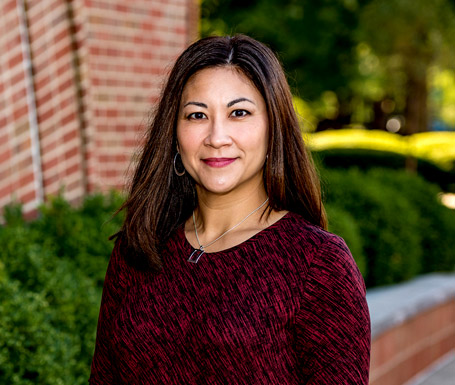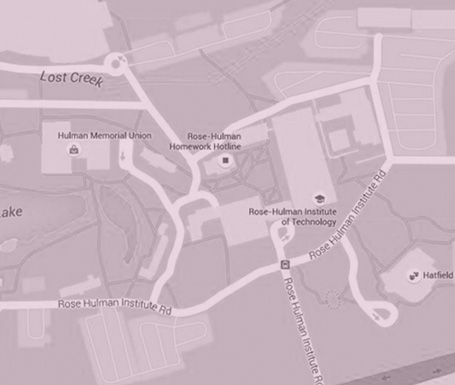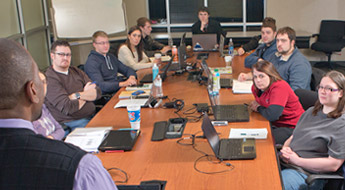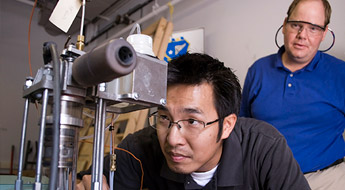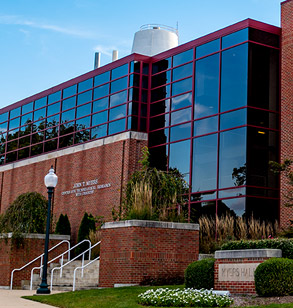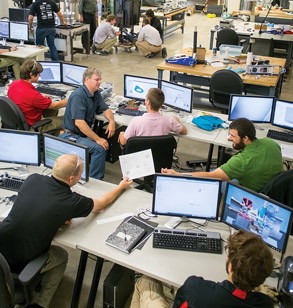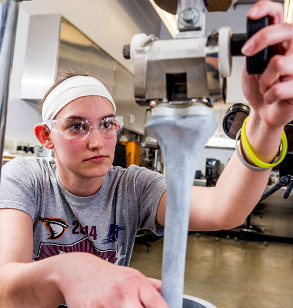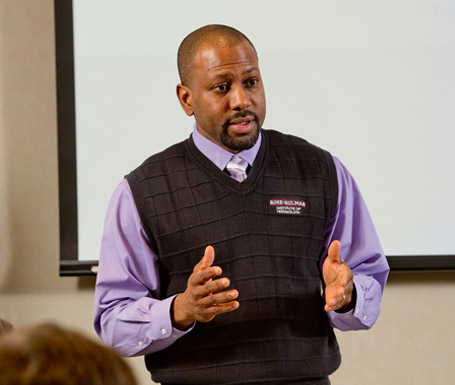The chemical engineering master's programs offer a unique opportunity for an individual to broaden and enhance his or her undergraduate training with concentrated study in a specialized area of chemical engineering. The program is a blend of "traditional" programs based on full-time, resident graduate activity and "industrial" programs that can be beneficial to students employed in nearby industries or to those who want to alternate periods of full-time graduate work and full-time work in industry.
The department offers two graduate path alternatives. Our Master of Science (MS) degree program is a traditional thesis-based approach whereby the student pursues both laboratory and course work culminating in the preparation and oral defense of a written thesis. Our Master of Chemical Engineering (MChE) degree is a course-based master's program which requires additional coursework or project study in lieu of a traditional thesis.
Areas of specialization within our department include energy and sustainability, separations, biochemical engineering and biosystems, process and transport modeling, process control and optimization, petroleum engineering, thermodynamics and molecular simulations, polymers, interfacial phenomena and nanotechnology, and particulate materials.
The department also offers undergraduate students who are ahead in their courses to work towards a master's degree while still completing their bachelor's degree. Students who wish to pursue this path should talk to their advisors.
The objective of both programs, the Master of Chemical Engineering and Master of Science in Chemical Engineering, is to prepare graduates for early career advancement in the field of Chemical Engineering by building upon their undergraduate training with advanced coursework and concentrated study of problems and topics relevant to the field.
Master of Chemical Engineering and Master of Science in Chemical Engineering Student Learning Outcomes
- Apply advanced principles from thermodynamics, reaction engineering, or transport phenomena in solving complex chemical engineering problems.
- Relate course concepts to current topics of interest in chemical engineering industry or research.
Master of Science (MS) in Chemical Engineering requirements
36 credit hours of course work
12 credit hours of thesis work
Core Coursework (12 credit hours required)
An advanced engineering thermodynamics course (CHE 513 or ME 501 or equivalent)
An advanced course in fluid flow and/or heat transfer (CHE 502 or ME 503 or equivalent)
Transport Phenomena II (CHE 503) or Advanced Reactor Design (CHE 504)
Minor Coursework (8 credit hours required)
An area of concentration approved by the thesis advisory committee
Electives
A minimum of 16 credit hours of electives approved by the advisory committee is required. Some suggested electives from the field of chemical engineering are listed below:
CHE 441 Polymer Engineering
CHE 450 Air Pollution Control
CHE 461 Unit Operations in Environmental Engineering
CHE 470 Safety, Health and Loss Prevention
CHE 503 Transport Phenomena II
CHE 504 Advanced Reactor Design
CHE 512 Petrochemical Processes
CHE 521 Advanced Chemical Engineering Computation
CHE 540 Advanced Process Control
CHE 545 Introduction to Biochemical Engineering
CHE 546 Bioseparations
Master of Chemical Engineering (MCHE) requirements
12 credit hours of core course work
12 credit hours of course work in advisory committee approved concentration area
24 credit hours of elective course work
Core Coursework: (12 credit hours required)
Transport Phenomena
(CHE 502 or approved equivalent)
Advanced Reactor Design
(CHE 504 or approved equivalent)
Advanced Thermodynamics
(CHE 513 or approved equivalent)
Concentration Area: (12 credit hours required)
With the understanding that a graduate degree indicates that a student has shown the motivation and ability to pursue specialized study past the B.S. degree, the M.E. degree requires students to pursue 12 credit hours of course work in a committee-approved concentration area.
Possible options:
1 Concentration area course work could be concentrated in a particular sub-discipline of Chemical Engineering (e.g. control theory) with relevant graduate courses from outside the department (e.g. EE) also qualifying for the program in relevant instances.
2 Concentration area course work could be performed in an engineering department different from the student’s undergraduate degree to gain competency in a related engineering discipline (e.g. ABBE).
3 Concentration area course work could be performed in a non-technical business-related discipline such as economics, business, or finance.
4 Concentration area course work could include up to 8 hours of advisor-supervised project research resulting in a non-research Master’s project report with the aim of reviewing and commenting upon a current topic area (advisory committee-approved) of relevance to the chemical engineering profession. Such a report would include literature, or literature and laboratory research, and would be written more in the style of a review article or project report rather than a scientific research document.
Electives:
A minimum of 24 credit hours of electives approved by the advisory committee is required. Some suggested electives from the field of chemical engineering are listed below.
CHE 441 Polymer Engineering
CHE 461 Unit Operations in Environmental Engineering
CHE 465 Energy & the Environment
CHE 470 Safety, Health and Loss Prevention
CHE 512 Petrochemical Processes
CHE 540 Advanced Process Control
CHE 545 Introduction to Biochemical Engineering
CHE 546 Bioseparations
